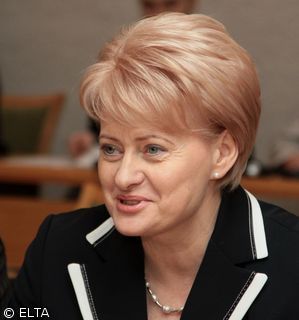The State Duma’s vice chairman and leader of the Liberal-Democratic Party of Russia Vladimir Zhirinovsky has presented yet another bill aimed at reversing the decline of the Russian population.
Published:
8 April 2001 y., Sunday
The latest initiative by Russia’s most flamboyant politician is characteristically radical.
In Russia the falling birth rate against a soaring mortality rate, sometimes referred to as the “Russian Cross,” is a indeed a serious problem. The average life expectancy of the average Russian male has decreased by almost 10 years since the break-up of the Soviet Union and the birth rate declined rapidly.
In March Vladimir Zhirinovsky presented his draft bill “On emergency measures for improving the demographic situation in the Russian Federation” to the lower house of parliament, the State Duma.
Zhirinovsky’s draft bill called for abortions to be made illegal for all women under 40, except for those with HIV and other STD or those with mental disorders or hereditary illnesses, and for all contraception to be banned.
Zhirinovsky’s bill also called for strict limitations on the freedom of movement for Russian women. In order to prevent Russian women from emigrating abroad, Zhirinovsky’s draft bill also stipulated for a strict 10-year travel ban for all Russian ladies, except for those traveling on package sightseeing tours, emergency business trips and “artists, sportsmen, teachers, scientists and other categories of citizens whose stay abroad is duly substantiated.” All the rest would have to stay at home and raise children.
As a consolation for women whose husbands or boyfriends are in the armed forces, Zhirinovsky proposed to introduce two additional ten day paid holidays allowing them to visit their men at their bases. The bill stipulated that the Defence Ministry must create necessary conditions for their “joint stay,” i.e. ‘love houses’ would have to be built in all barracks.
In March the lower house rejected Zhirinovsky’s bill in its first reading, saying that it needed improvement, as many of its clauses were deemed to conflict with the Russian Constitution.
Last year Zhirinovsky put forward a draft bill to allow the regions of Russia to decide whether to allow marital polygamy. This draft bill was taken somewhat more seriously considering the regions of Russia with a predominantly Muslim population, but was rejected all the same.
On Wednesday, April 4, Zhirinovsky introduced another bill aimed at increasing Russia’s population. He said that postmortem examinations must be made compulsory by law.
Šaltinis:
gazeta.ru
Copying, publishing, announcing any information from the News.lt portal without written permission of News.lt editorial office is prohibited.
The most popular articles
 You can now access books, journals, films, maps etc from across Europe via the EU's online library, Europeana.
more »
You can now access books, journals, films, maps etc from across Europe via the EU's online library, Europeana.
more »
 Late night chat turned serious when comedian David Letterman admitted he had sex with female employees and was being blackmailed for $2-million (USD) over the affairs.
more »
Late night chat turned serious when comedian David Letterman admitted he had sex with female employees and was being blackmailed for $2-million (USD) over the affairs.
more »
 Last Thursday (1 October) saw an agreement that will lead to the introduction of more efficient tyres for cars and lorries that will cut fuel bills and CO2 emissions.
more »
Last Thursday (1 October) saw an agreement that will lead to the introduction of more efficient tyres for cars and lorries that will cut fuel bills and CO2 emissions.
more »
 The European Job Days are taking place around the EU over the next fortnight, with a centrepiece event in Brussels on 3 October.
more »
The European Job Days are taking place around the EU over the next fortnight, with a centrepiece event in Brussels on 3 October.
more »
 Women, especially migrant and/or poor women, have been harder hit by the financial crisis than men, MEPs heard on Wednesday.
more »
Women, especially migrant and/or poor women, have been harder hit by the financial crisis than men, MEPs heard on Wednesday.
more »
 New EU plan to make local transport efficient and sustainable.
more »
New EU plan to make local transport efficient and sustainable.
more »
 Hollywood heavyweights and European cultural figures are rallying behind jailed film director Roman Polanski.
more »
Hollywood heavyweights and European cultural figures are rallying behind jailed film director Roman Polanski.
more »
 By the time of his death in the Moscow winter 20 years ago, Andrei Sakharov had built an international reputation as a nuclear physicist, human rights activist and Nobel Peace Prize winner His fears over the implications of his work led him to call for peaceful coexistence and later for human rights in the USSR.
more »
By the time of his death in the Moscow winter 20 years ago, Andrei Sakharov had built an international reputation as a nuclear physicist, human rights activist and Nobel Peace Prize winner His fears over the implications of his work led him to call for peaceful coexistence and later for human rights in the USSR.
more »
 The ten nominations for this year's Sakharov Prize, the EP's prize for defenders of human rights and democracy, have now been put forward and will be officially presented at the end of the month.
more »
The ten nominations for this year's Sakharov Prize, the EP's prize for defenders of human rights and democracy, have now been put forward and will be officially presented at the end of the month.
more »
 President of the Republic of Lithuania Dalia Grybauskaitė attended a meeting hosted by the President of Liberia Ellen Johnson-Sirleaf and the President of Finland Tarja Halonen on Peace and Security through Women's Leadership.
more »
President of the Republic of Lithuania Dalia Grybauskaitė attended a meeting hosted by the President of Liberia Ellen Johnson-Sirleaf and the President of Finland Tarja Halonen on Peace and Security through Women's Leadership.
more »